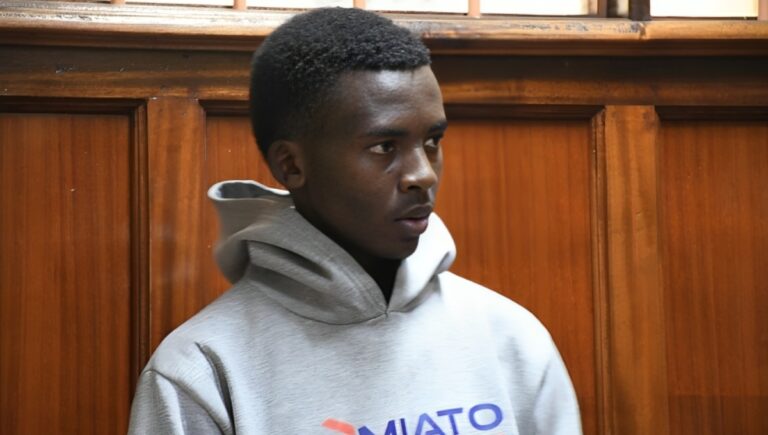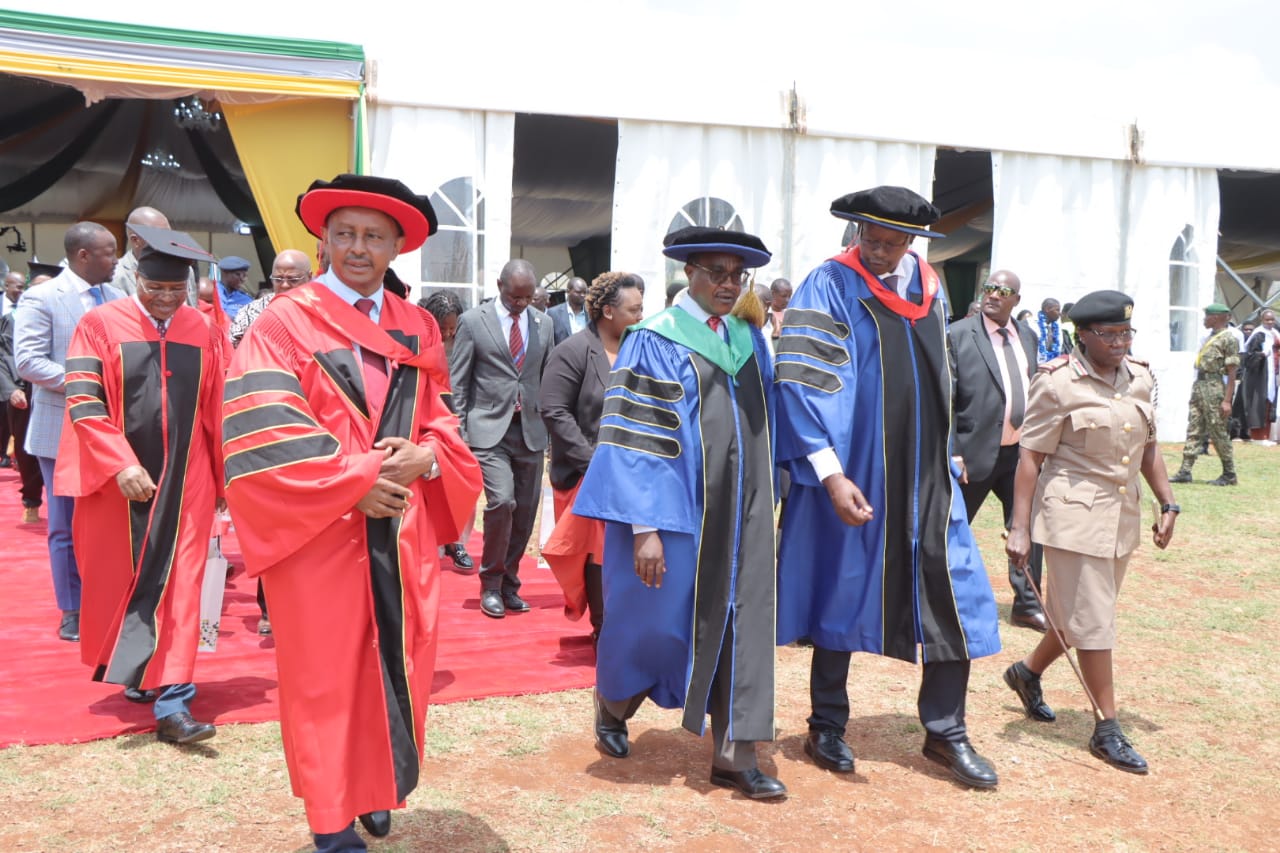Education CS Ezekiel Machogu has responded to MP Kimani Ichungwa’s letter demanding a full report on all the recommendations of the Presidential Working Party on Education Reforms (PWPER).
The MP also sought clarification on why the Ministry of Eductaion was tasked to review the entry grades for pre-service teachers and the establishment of a comprehensive school system where all learning levels are managed as one institution.
Ichung’wah also wants to know the MoE is to undertake recruitment of staff for special needs education institutions and marginalized areas contrary to the Constitution and , why the reforms team gave TSC the power to employ chaplains and imams in school contrary to Article 8 of the Constitution which separates State and Religion.
In his letter dated October 2, 2023, Machogu stated that the PWPER recommended the adoption of a 2-6-3-3-3 education structure and the hosting of Junior Secondary School (JSS) in existing primary schools.
This recommendation has been implemented.
The team further recommended that KICD rationalizes the learning areas to a maximum of 5 for pre-primary from 9 to not more than 7 for lower primary from 12 to not more than 8 for upper primary from 14. The maximum learning areas for JSS were to be rationalized to 9 while those for Senior Secondary Schools were to be not more than 7.
Other recommendations include: that grade 6 Kenya Primary School Education Assessment (KPSEA) be used to monitor learner’s progress and provide feedback to education sector players on areas that require intervention and not for placement, that the computation of KCSE mean score by KNEC be based on Mathematics, any one language from English, Kiswahili or Kenya Sign Language and other five best performing subjects.
Machogu said that this will be effective from this year’s KCSE class.
For students in TVET institutions and universities, PWPER recommended that the government implement a Variable Scholarship and Loan Funding (VSLF) model that combines scholarships and loans to students categorized on need.
To fund their education, students classified as vulnerable are to receive 82% scholarships, 18% loans and pay 0%, the extremely needy students get 70% scholarship, 30% loans and pay 0%, needy students receive 53% scholarship, 40% loans and pay 7% while those in the less needy students category will get 38% scholarship, 55% loans and pay 7%.
The team also recommended that the Government should develop a transparent and fair criterion for allocation of funds to public universities and issue conditional grants to private universities.
The board approved the new funding model in June 2023 as the process of implementation is ongoing with the 2022 KCSE students already placed in higher learning institutions.
The students applied for funding through the Higher Education Funding portal accessible on the website: www.hef.co.ke, with the CS, through a circular dated August 24, 2023, directing Vice Chancellors of Public Universities, Principals of National Polytechnics and Technical and Vocational Education and Training Institutes to admit all students from the 2022 KCSE as the government processes the applications for funding.
The Working Party recommended that the MoE operationalize Technical and Vocational Education and Training Curriculum Development Assessment and Certification Council (TVET CDACC).
They also recommended for establishment of National Polytechnic in every County, a Technical and Vocational College in every constituency and a Vocational Training Centre in every ward by County Governments. The Cabinet in its meeting on August 29, 2023, approved the establishment of 13 National Polytechnics, bringing the total number to 24.
The approval on the recommendation of Recognition of Prior Learning (RPL) is being processed by the MoE for rollout and implementation by 2024.
The Working Party was required to recommend a framework for the operationalization of Open University of Kenya through which based on its recommendations, the MoE established a Technical Working Committee that prepared the charter, blue print, proposal, curriculum and learning modules for 8 courses.
At the moment, applications and placements of students by KUCCPS to the institution is ongoing with a total of 1,009 applications received and ready for admissions as at September 29, 2023.
In addition, the process of hiring and secondment of key staff for the University is also ongoing.
Concerning the issues raised, the CS responded as follows:
- Review of grades for pre-service teachers
Pre-service teacher education in Kenya is offered either at middle level colleges or universities. For admission to Diploma Teacher Training Colleges, MoE is mandated to set the admission requirements for teacher trainees while at the university level it is the mandate of the university senate to set admission requirements for Bachelor of Education students.
The Constitution vets the TSC with the power to review the standards of education and training of persons entering the teaching service and to advice the National Government on matters relating to the teaching profession.
Therefore, the responsibility of setting entry requirements for admission to learning institutions is not the Constitutional mandate of TSC but of MoE.
In the line of duty, the Working Party visited several Teachers Training Centres (TTCs) where 64.83% of the stakeholders called for a review of the entry grade requirement and subject cluster for admission to TTCs.
This was because the revision in entry grade requirement had led to a drastic reduction in the number of teacher trainees.
The Working Party therefore recommended the following entry grade for pre-service teacher education programmes:
- For Diploma in Early Childhood Teacher Education (DECTE) and Diploma in Primary Teacher Education (DPTE), the minimum entry grade is C plain in KCSE or its equivalent in Senior School.
- For Diploma in Secondary Teacher Education (DSTE), the entry grade is C plain in KCSE or equivalent in Senior School with C+ in teaching subjects.
- For Diploma in Special Needs Teaching Education (DSNTE), the entry grade for is C plain in KCSE or its equivalent in Senior School.
- Lastly, for the Diploma in Teaching Education, the entry grade is C plain in KCSE or its equivalent in Senior School with C+ in related Science, Technology, Engineering and Mathematics (STEM) teaching subjects.
Upon implementation of the recommendations, the enrolment to diploma primary teacher education has risen from 3,922 to 18, 670.
- Establishment of a comprehensive school system
This recommendation hasn’t been implemented.
- Recruitment of staff for Special Needs Education institutions and marginalized areas
The working Party recommended the MoE should review policies and guidelines on Special Needs Education but it hasn’t been implemented.
- Employment of Chaplains and Imams in schools
PWPER also recommended greater recognition of sponsors contrary to the concerns noted in the letter by the Majority Leader of removal of power of sponsors in the school.
They also had recommendations on how to address the relationship between the MoE and the sponsors and how to address the conflicts between religious rights and schools.
However, it hasn’t been implemented yet.
The PWPER was constituted on September 29, 2022 through Gazette Notice No. 11920 to undertake a comprehensive review of policies and legislation on education, training and research and provide appropriate recommendations to address challenges facing the sector.
The Working Party consisted of 43 members and 10 joint secretaries drawn from diverse backgrounds including academia, faith based organizations, teachers, parents, lawyers, engineers and curriculum experts while the secretariat comprised of officers from Ministry of Education, Teachers Service Commission (TSC), Kenya National Examination Council (KNEC), Kenya Institute of Curriculum Development (KICD), Executive Office of the President, Commission for University Education (CUE), Office of the Attorney General and Department of Justice (OAG&DOG) and Kenya Secondary School Heads Association (KESSHA).
The team submitted the first progress report on December 1, 2022 addressing transition of grade 6 learners, the second progress report on February 16, 2023 addressing Technical and Vocational Education and Training, University Education and Teacher Education and the final report on August 1, 2023 addressing Transforming Education Training and Research for Sustainable Development in Kenya.
By Viola Chepkemoi
Get more stories from our website: Education News
To write to us or offer feedback, you can reach us at: editor@educationnews.co.ke
You can also follow our social media pages on Twitter: Education News KE and Facebook: Education News Newspaper for timely updates.
>>> Click here to stay up-to-date with trending regional stories






